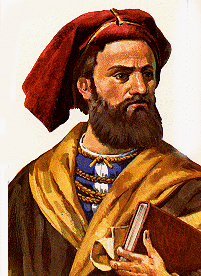Yuan
Dynasty

Under the wise governing the Mongolian rulers, the social economy in the Yuan Dynasty in early period developed fairly well in agriculture, handicraft industry, commerce and foreign trade.
The agriculture was the major economy of the Yuan Dynasty. Although the Mongolian people were a nomadic people who originally lived on the grassland for generations, Kublai Khan focused much attention on the agricultural production after the founding of Yuan Dynasty. The following emperors also advocated replacing the traditional animal husbandry with agriculture. As a result, no matter in the production technique, the farming area or the food output, the Yuan Dynasty surpassed the previous dynasties.
-
Agriculture - In the period of Kublai Khan, reign gradually recovered.
-
Water conservancy - 2 new canals were constructed
-
Animal husbandary
-
Handicraafts - textile industry
-
Tax farming
-
Used paper money and copper coins
-
Revitalized trade
-
Encouraged sahring and exchange of ideas
-
Medical information, Science, Mathematics, Warfare, etc.
Foreign trade flourished under the Yuan dynasty. The overland trade to Central Asia, the Middle East, and Persia was primarily dominated by Muslim merchants. They imported horses, camels, rugs, medicines, and spices. Chinese textiles, chinaware, lacquerware, and other items were exported. The overseas trade also continued to deliver goods to the southeastern port cities of Quanzhou and Fuzhou, where Chinese silk, porcelain, and copper coins were traded for gems, rhinoceros horns, medicines, carpets, and spices. The Yuan rulers required foreign traders to convert their metal coins into Chinese paper currency.


Among the thousands of foreign merchants to visit China, Marco Polo was the most renowned. He was the first westerner to leave a written record about China. Born into a merchant family in Venice, Marco Polo was fascinated by the stories of China told by his father, Niccolo, and uncle Maffeo, who had traveled to China to trade. He served in Kublai Khan’s court for seventeen years and returned home in 1295. He wrote about the use of coal, the salt trade, and the local customs of Yangzhou, where he claimed he had served as governor for three years. He also wrote about his many conversations with Kublai Khan, and he described the Chinese ruler as “neither too small nor too large,” with black eyes and a prominent nose.